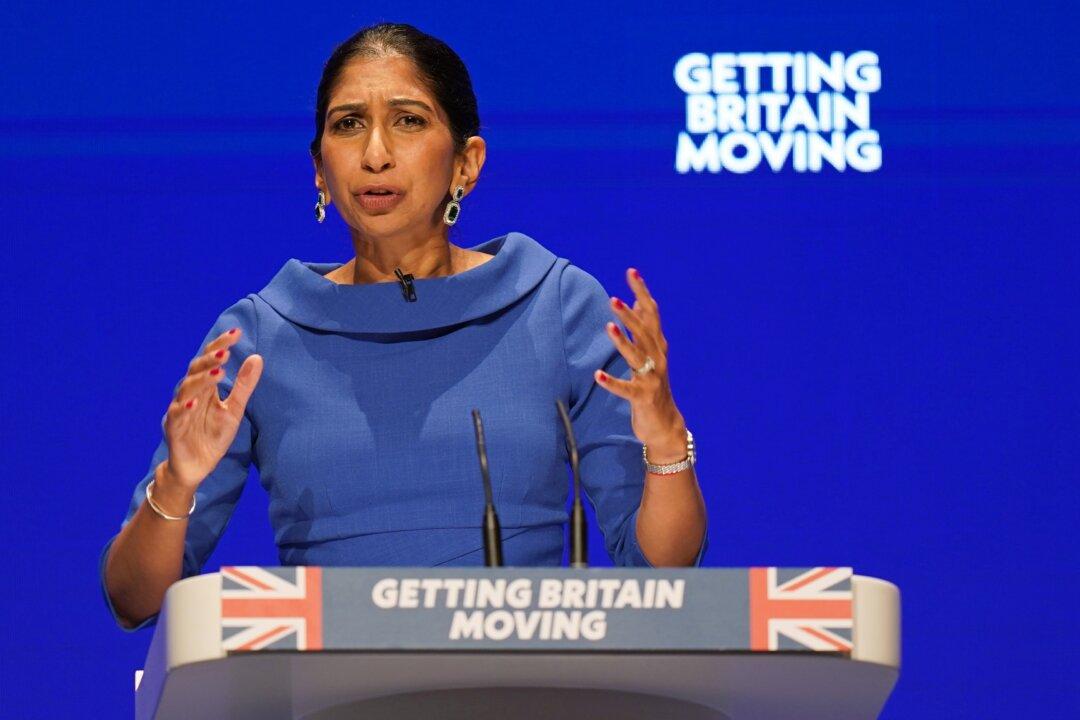British Home Secretary Suella Braverman on Tuesday vowed to do “whatever it takes” to stop illegal immigration across the English Channel.
In her first major speech as home secretary, Braverman told the Conservative Party conference in Birmingham that she wants to “cut [the] overall numbers” of immigration, adding the UK shouldn’t be “relying wholly on low skilled foreign workers.”





